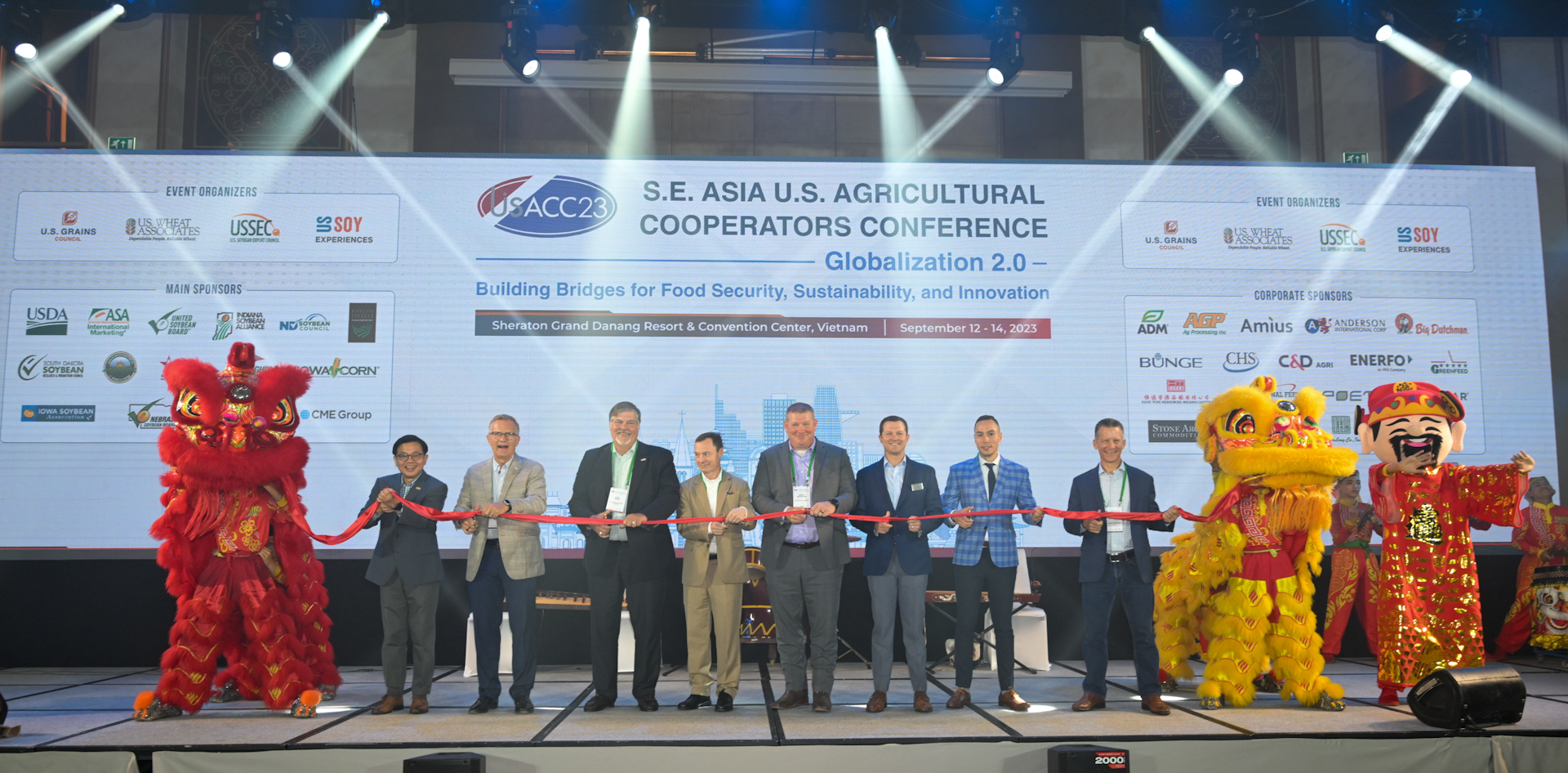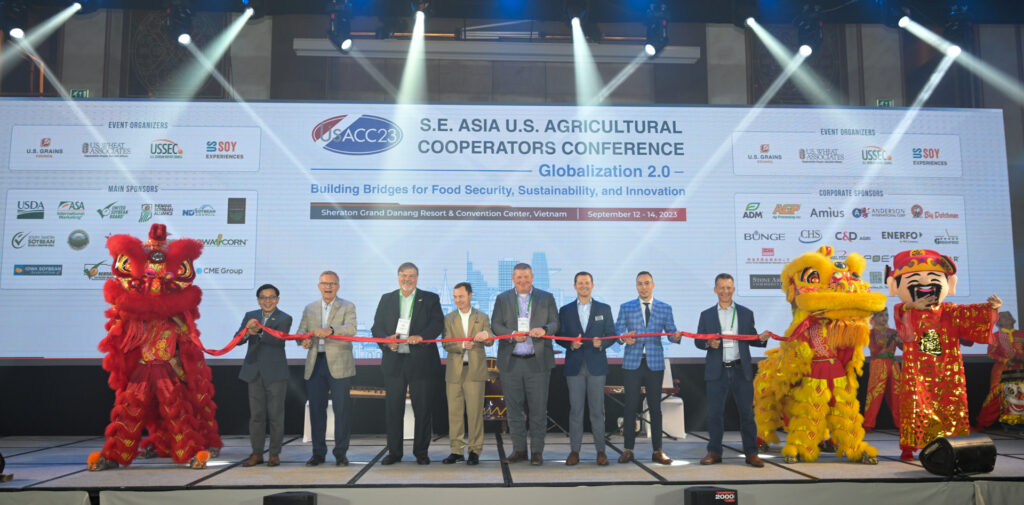S.E. Asia Agricultural Cooperators Conference Transacts 1.7 Million Metric Tons of U.S. Agricultural Products, Emphasizing Free Trade and Innovation for Global Food Security
- Category:
- Soy Foods
- Sustainability

The recent Southeast Asia U.S. Agricultural Cooperators Conference provided an opportunity to emphasize the significance of the U.S.-Vietnam relationship as key trading partners. The conference, themed "Globalization 2.0: Building Bridges for Food Security, Sustainability and Innovation," delved into the critical issue of food security while highlighting the pivotal role of innovation in securing global food systems.
Set against the scenic backdrop of Da Nang, Vietnam, the landmark event was jointly hosted by the U.S. Soybean Export Council (USSEC), the U.S. Grains Council (USGC) and U.S. Wheat Associates (USWA). Beyond reaffirming the commitment to fostering growth in Southeast Asia, the conference provided an invaluable platform for industry leaders, enabling the exchange of ideas and the creation of opportunities for suppliers and customers alike.
Based on participant evaluations, an impressive 1.7 million metric tons of U.S. agricultural products is projected to have been transacted and negotiated at the conference. This includes approximately 370,000 metric tons of soybeans, 445,000 metric tons of soybean meal, 277,000 metric tons of corn, 394,000 metric tons of dried distiller grains with solubles (DDGS) and 234,000 metric tons of wheat. These figures firmly establish the conference as the premier agricultural event in Southeast Asia.
Accelerating Sustainable Agriculture
Throughout the three-day conference, sustainability emerged as a central theme underpinning global food production and supply chain practices. Stan Born, Chairman of USSEC, encapsulated this ethos, stating, "The land is the host; we are its guests," emphasizing the importance of preserving and protecting the land for future generations.
Jim Sutter, CEO of USSEC, underlined the enduring strength of relations with Southeast Asia, declaring, "We have been strong in our relations with Southeast Asia, and we intend to continue in that vein." Timothy Loh, Regional Director, Southeast Asia and Oceania, USSEC, echoed this commitment by pledging support for the region's growth and development.
An Emerging Hub for Regional Food Security
The agri-food industry, spanning from farm to fork, continues to drive economic growth in Southeast Asia. The conference facilitated discussions on the industry's promising outlook and the resulting strategic partnerships between the public and private sectors. Ralph Bean, U.S. Agricultural Counselor to Vietnam, USDA Foreign Agricultural Service, pointed out that according to the USDA's Economic Research Service, ASEAN is projected to remain one of the world's fastest-growing areas, with an average growth rate of 4.6% from 2023 to 2032. Southeast Asia also accounts for a substantial 42.3% of the projected increase in global soybean meal trade.
Furthermore, shifting consumption patterns in the region, particularly towards noodles, fast food, and bakery products, are expected to drive demand for wheat-based products. Notably, Southeast Asian nations like Vietnam and Indonesia are among the world's top producers of seafood, making the region a key player in the global aquaculture industry. Lukas Manomaitis, USSEC's Aquaculture Technical Director, highlighted the scalability of the region's aquaculture industry, capable of meeting the growing demand for seafood.
Free Trade for Increased Innovation and Prosperity
While the industry's prospects appear promising, sustaining globalization and free trade is paramount, especially as some nations consider protectionist measures. Ryan LeGrand, President and CEO of the U.S. Grains Council, emphasized the importance of resisting deglobalization trends, stating that "when trade works, the world wins."
Economic historian Dr. Harold James, Claude and Lore Kelly Professor in European Studies at Princeton University, pointed out that economic crises can paradoxically drive globalization and innovation. He highlights that supply crises underscore the dependence of certain countries on trade to maintain robust food supplies, with technology emerging as a critical enabler of global trade.
Speakers at the conference, including Ryan Sauer, Vice President of Market Development at the Iowa Corn Growers Association, explored growth opportunities for corn in the green economy, highlighting the versatile applications of corn, including its use in bioethanol production.
In summary, the Southeast Asia U.S. Agricultural Cooperators Conference not only facilitated substantial agricultural business opportunities for the U.S., enhancing its reputation as the sustainable one-point solution provider for agricultural imports for food and feed applications, but also reinforced the importance of international collaboration, sustainability, and innovation in securing the future of global food systems. The information, statistics and insights presented during this event amplifies the significance of the agricultural landscape of Southeast Asia and its crucial role in addressing the challenges of food security.
This story was partially funded by U.S. Soy farmers, their checkoff and the soy value chain.
# # #
